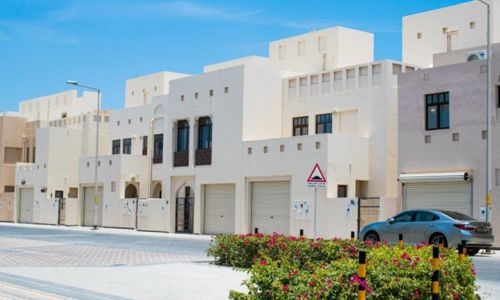The Housing Ministry in Bahrain has recently issued a guide to explain Decision No. (899) of 2024, which outlines new regulations for residential projects. The guide provides details on rules for residential buildings, home extensions, and plots, as well as some general provisions. HE Amna Al Rumaihi, Minister of Housing and Urban Planning, stated that the new rules aim to assist residents in taking advantage of expansion opportunities and addressing building issues through legal modifications overseen by the Ministry.
The guide highlights that Decision No. (899) allows for the addition of flats, commercial shops, and extra facilities to residential houses, as separate extensions from the main unit. These extensions must not exceed 15% of the land area and do not require engineering oversight. Architectural guidelines ensure that new developments blend well with the existing environment. Building over covered parking spaces is permitted up to two storeys, with an additional single storey above housing facilities. Lifts can be installed within housing units, and the maximum building height is set at three storeys or 13 metres.
The regulations categorize housing areas into three zones – Zone A for plots over 300 square metres, Zone B for plots under 300 square metres, and Zone C for plots under 250 square metres. Villas on smaller plots can expand, with the total area not exceeding 240% of the land and no single storey covering more than 80% of the land. Additional facilities can be added to a villa’s roof, up to 30% of the roof area, and further extensions up to 15% of the land area can be added to the side of the villa, without surpassing the height of the main storey.
Fences are limited to 2.5 metres in height, and new constructions must match the original façade to maintain aesthetic harmony. Parking spaces can be added to the side or rear of villas, as long as they comply with regulations and do not encroach on public areas. Building over parking spaces is restricted to two storeys, with additional storeys above housing facilities limited to 3.2 metres and 50 square metres per storey. External Majlis constructions are permitted up to 10% of the land area without exceeding the overall building percentage, ensuring no damage to a neighbor’s insulation layer.
In conclusion, the release of the guide by the Housing Ministry in Bahrain provides clarity on the new regulations set forth in Decision No. (899) of 2024, aimed at facilitating expansion opportunities for residents and addressing existing building issues through legal modifications overseen by the Ministry. The regulations allow for the addition of flats, commercial shops, and extra facilities to residential houses, with specific guidelines on land area coverage and building height. The detailed guidelines on residential areas, villa expansions, and additional facilities help ensure that new constructions blend seamlessly with their surroundings while adhering to set regulations for a harmonious urban environment.








